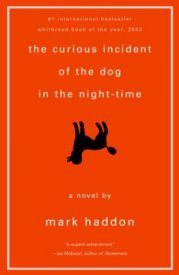mehastings
Active Member
Suggestions: March 2007 Book of the Month
Please post descriptions!
Suggestions to close January 15.
Please post descriptions!
Suggestions to close January 15.
We LOVE books and hope you'll join us in sharing your favorites and experiences along with your love of reading with our community. Registering for our site is free and easy, just CLICK HERE!
Already a member and forgot your password? Click here.

More than a decade ago, Kazuo Ishiguro wowed readers with The Remains of the Day, a novel requiring readers to see past the self-deceptions of an uppity English narrator to understand the true significance of the story. In the same vein, Zoë Heller offers a riveting story of friendship, jealousy, and betrayal, with a narrator as unreliable as Ishiguro's infamous butler.
Heller's narrator is Barbara Covett, a British schoolteacher who lives a quiet, solitary life with an aging cat as her sole companion. For reasons she cannot comprehend, Barbara has never been good at making friends. But she is drawn to Sheba, a pretty new pottery teacher, and jealously tries to edge out the other teachers to win Sheba's friendship. When Sheba begins an inappropriate relationship with a young male student, it is Barbara in whom she confides. Soon, Barbara begins a written account of Sheba's illicit affair, detailing the actions of a woman caught in the grip of an obsession larger than herself.
As Barbara continues to infiltrate Sheba's life, their friendship acquires a dangerous undercurrent. And although the book title ostensibly refers to Sheba, readers might ask themselves the same question of Barbara, as this psychologically rich, complex tale unfolds. In penning her wickedly wonderful second novel, Zoë Heller certainly had her head squarely on her shoulders.
Sick Puppy by Carl Hiaasen
From The Publisher:
When Palmer Stoat notices the black pickup truck following him on the highway, he fears his precious Range Rover is about to be carjacked. But Twilly Spree, the man tailing Stoat, has vengeance, not sport-utility vehicles, on his mind. Idealistic, independently wealthy and pathologically short-tempered, Twilly has dedicated himself to saving Florida's wilderness from runaway destruction. He favors unambiguous political statements -- such as torching Jet-Skis or blowing up banks -- that leave his human targets shaken but re-educated.
After watching Stoat blithely dump a trail of fast-food litter out the window, Twilly decides to teach him a lesson. Thus, Stoat's prized Range Rover becomes home to a horde of hungry dung beetles. Which could have been the end to it had Twilly not discovered that Stoat is one of Florida's cockiest and most powerful political fixers, whose latest project is the "malling" of a pristine Gulf Coast island. Now the real Hiaasen-variety fun begins ...
Dognapping eco-terrorists, bogus big-time hunters, a Republicans-only hooker, an infamous ex-governor who's gone back to nature, thousands of singing toads and a Labrador retriever greater than the sum of his Labrador parts -- these are only some of the denizens of Carl Hiaasen's outrageously funny new novel.
Brilliantly twisted entertainment wrapped around a powerful ecological plea, Sick Puppy gleefully lives up to its title and gives us Hiaasen at his riotous and muckraking best.
The New Yorker said:Mitchell's virtuosic novel presents six narratives that evoke an array of genres, from Melvillean high-seas drama to California noir and dystopian fantasy. There is a naïve clerk on a nineteenth-century Polynesian voyage; an aspiring composer who insinuates himself into the home of a syphilitic genius; a journalist investigating a nuclear plant; a publisher with a dangerous best-seller on his hands; and a cloned human being created for slave labor. These five stories are bisected and arranged around a sixth, the oral history of a post-apocalyptic island, which forms the heart of the novel. Only after this do the second halves of the stories fall into place, pulling the novel's themes into focus: the ease with which one group enslaves another, and the constant rewriting of the past by those who control the present. Against such forces, Mitchell's characters reveal a quiet tenacity. When the clerk is told that his life amounts to "no more than one drop in a limitless ocean," he asks, "Yet what is any ocean but a multitude of drops?"

